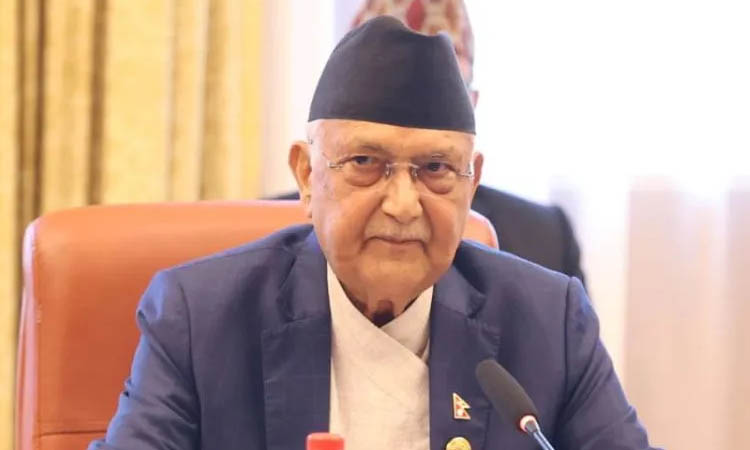News Flash

KATHMANDU, Sept 9, 2025 (BSS/AFP) - Nepal's veteran prime minister resigned on Tuesday after youth protesters demanded he quit, a day after one of the deadliest crackdowns in years in which at least 19 people were killed.
The protests, which began on Monday with demands that the government lifted a ban on social media and tackled corruption, reignited despite the apps going back online.
Protesters on Tuesday attacked and set fire to KP Sharma Oli's house, the 73-year-old prime minister and leader of the Communist Party, according to Nepali media.
"I have resigned from the post of prime minister with effect from today... in order to take further steps towards a political solution and resolution of the problems," Oli said Tuesday.
Kathmandu police spokesman Shekhar Khanal said that several groups had refused to obey a curfew on Tuesday, telling AFP there were protesters in the street in many areas, and "cases of fire and attacks".
Some targeted the properties of politicians and government buildings, according to an AFP photographer and local media reports.
Oli started his fourth term last year after his Communist Party forged a coalition government with the centre-left Nepali Congress in the often-volatile parliament.
His resignation followed that of three other ministers, and despite the government repealing the ban "which was among the Gen Z's demands", Minister for Communication Prithvi Subba Gurung told AFP, referring to young people aged largely in their 20s.
The social media ban fed into existing anger at the government in a country with a youth bulge.
People aged 15-40 make up nearly 43 percent of the population, according to government statistics -- while unemployment hovers around 10 percent and GDP per capita is just $1,447, according to the World Bank.
- Live ammunition -
Slogans demanding accountability from the authorities have been a feature at the protests.
"Nearly 20 people were murdered by the state -- that shows the scale of police brutality," said 23-year-old student Yujan Rajbhandari.
Several social media sites -- including Facebook, YouTube and X -- were blocked on Friday in the Himalayan nation of 30 million people, after the government cut access to 26 unregistered platforms.
Amnesty International said live ammunition had been used against protesters on Monday, and the United Nations demanded a swift and transparent probe.
Since Friday, videos contrasting the struggles of ordinary Nepalis with the children of politicians flaunting luxury goods and expensive vacations have gone viral on TikTok, which was not blocked.
Popular platforms such as Instagram have millions of users in Nepal who rely on them for entertainment, news and business. Others rely on the apps for messaging.
"This isn't just about social media -- it's about trust, corruption, and a generation that refuses to stay silent," the Kathmandu Post newspaper wrote.
"Gen Z grew up with smartphones, global trends, and promises of a federal, prosperous Nepal," it added.
"For them, digital freedom is personal freedom. Cutting off access feels like silencing an entire generation."
Nepal has restricted access to popular online platforms in the past, including to Telegram in July, citing a rise in online fraud.
It lifted a nine-month ban on TikTok last year after the platform agreed to comply with Nepali regulations.